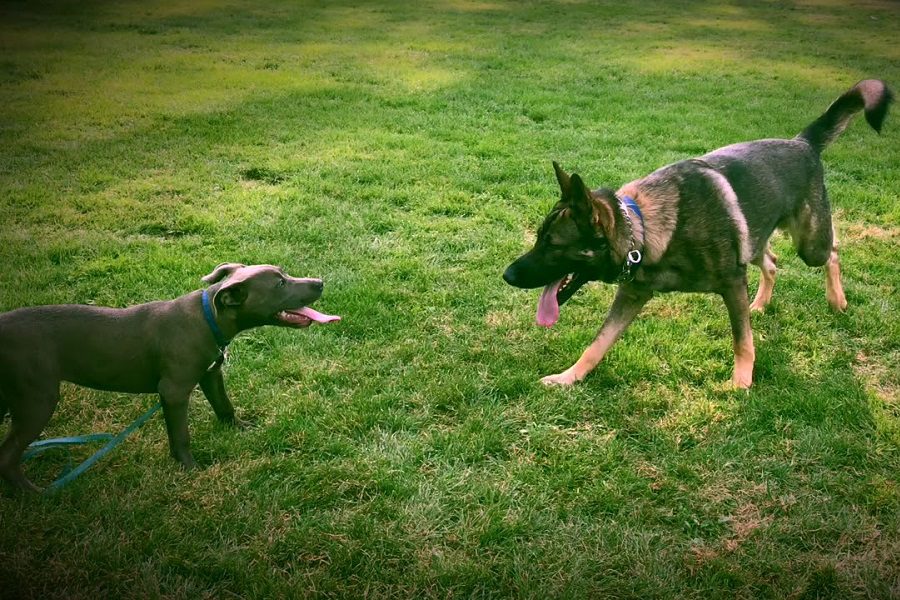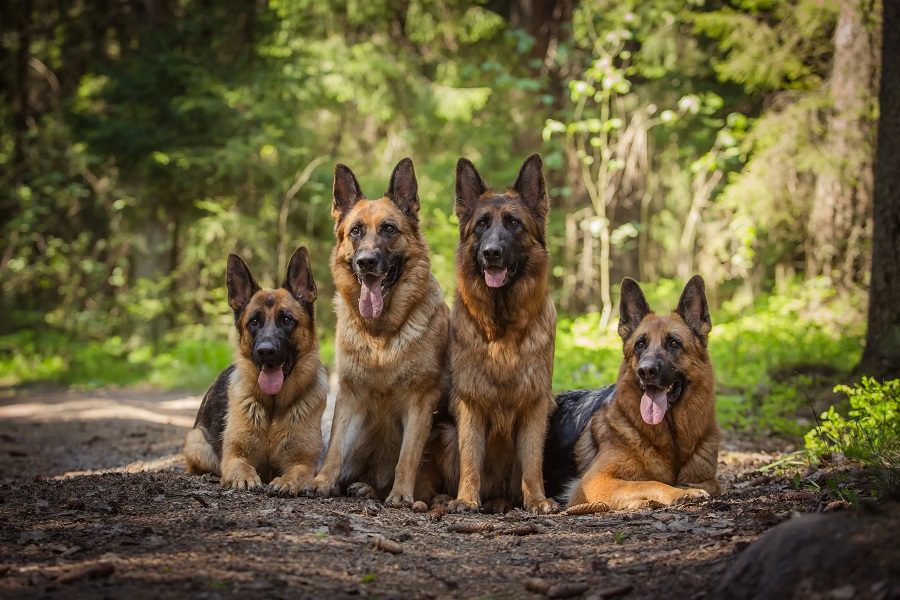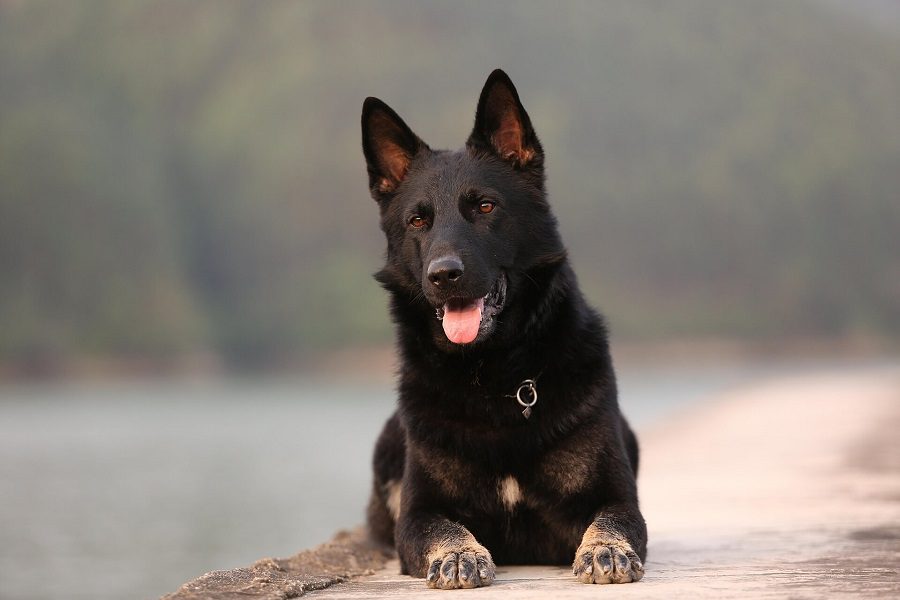Last Updated: 4 months ago
There is a lot of confusion when it comes to the miniature German shepherd. Many think that it is just a smaller version of a standard GSD.
This simply is not true. If there are any small, full-bred German Shepherds, it means that they suffer from dwarfism, and this is actually quite rare.
While miniature German Shepherds do exist, they are not full-breed German Shepherds.
People commonly breed the German Shepherd with other dog breeds, such as the collie or poodle, to create a miniature German Shepherd.
Appearance of a Miniature German Shepherd
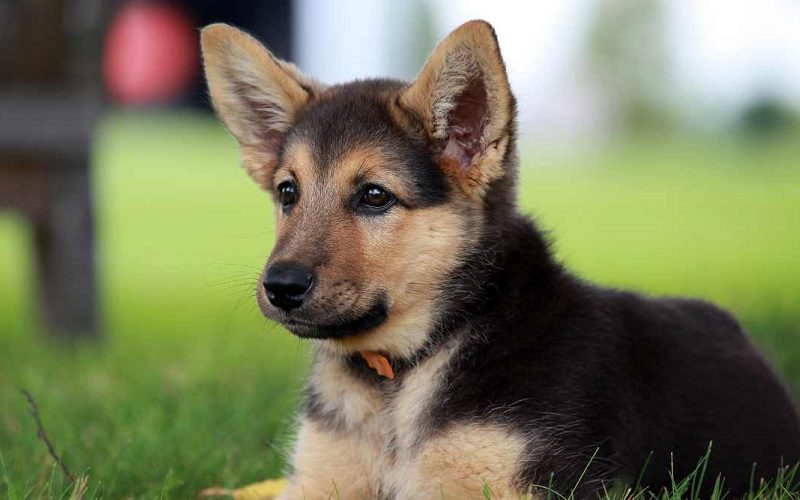
The Miniature The German Shepherd is generally an athletic breed that is smaller than the standard German Shepherd.
It has a full chest, strong and straight forelegs, and a balanced rear and front.
It has a proportionate head and a tapering muzzle. Since they are a mixed breed, their physical appearance can vary widely, but they usually show clear signs that they are part German Shepherd.
Miniature GSD Temperament
A miniature German Shepherd is typically a herding dog that is intelligent, devoted to its owner, and has a willingness to please. A German Shepherd is a herding dog that is intelligent, devoted to its owner, and has a willingness to please.
They usually make a great family pet and have a well-adjusted demeanor. They are excellent at obedience training and are quick learners.
They are great companion dogs as they are capable of expressing deep emotion and compassion to their owner and family.
Since the miniature German Shepherd is a result of cross-breeding, there is a possibility that a dog can inherit their temperament from either parent.
Even dogs that come from the same parent may have individual temperaments and personalities.
Get to know your future pup by visiting the breeder or a shelter often to assure yourself that you will be bringing home a dog that is best suited for you and your family.
Working Dogs
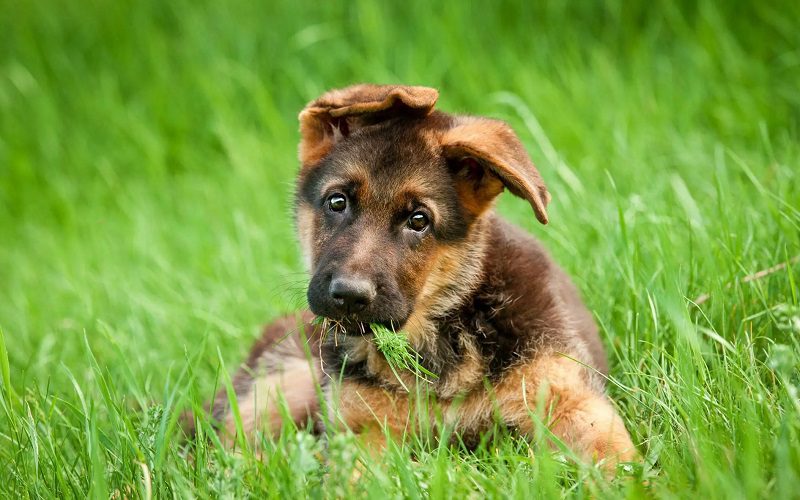
They are great working dogs, so if you own a farm and are looking for assistance herding, the miniature German Shepherd is a perfect choice.
In addition to herding, they are also very good at working as guard dogs, search and rescue dogs, and therapy dogs.
They do best by living a balanced life of work and play. They perform their work with enthusiasm and are eager to please their owner.
Family Dog
If you are looking for a family dog that will be loyal, devoted, good-natured, good with kids, an exceptional companion, and an excellent guard dog, the Miniature Shepherd is definitely a good choice.
You will want to dedicate time to socializing and training your miniature German Shepherd from the time they are a puppy.
You will be delighted with how quickly he will learn your commands and fit in with your family.
Common Health Issues
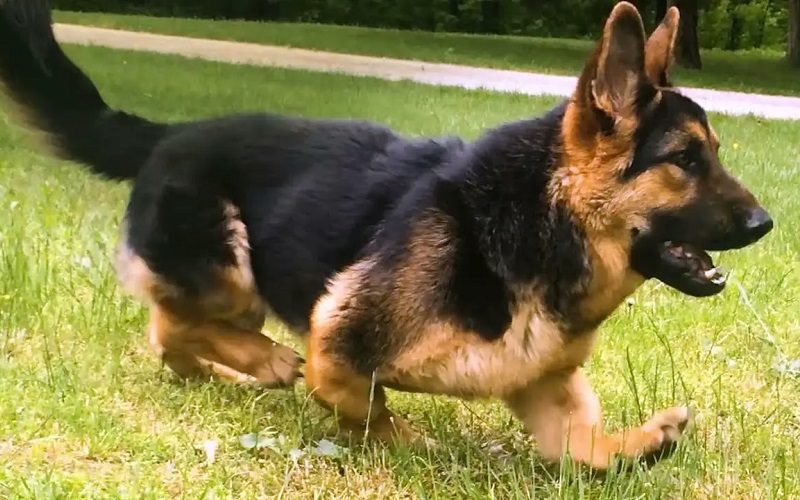
It can be challenging to determine if there will be health issues since the miniature German Shepherd is mixed with another breed.
Hip dysplasia is a common heredity condition that is frequent in German Shepherds, so this is a possibility.
Speak to the breeder and inquire about the other breeds used during the breeding process to determine if there are hereditary diseases in those breeds as well.
You can also take your dog to the veterinarian and have your dog examined.
The veterinarian will usually conduct blood tests during the exam that may help determine if there are any physical ailments or diseases present.
It is highly recommended to gain an understanding and prepare for the health issues that your dog may experience throughout its lifetime.
Dwarfism
If you do happen to welcome a dwarf German Shepherd into your home, there are a few things you should know. Dwarfism is a genetic defect, and these dogs usually need lifelong veterinarian care.
They can have a variety of health issues, including thyroid, pannus, allergies, and more. Dwarf German Shepherds usually only grow to be about 30 pounds or less, and they become bald as they age.
Don’t let the appearance fool you; they are truly German Shepherds in every other way. Their temperament, disposition, character, and loyalty all remain the same as those of a standard GSD.
As long as you pay attention to and take care of a dwarf GSD, he or she will live a long life.
Where to Find a Miniature German Shepherd
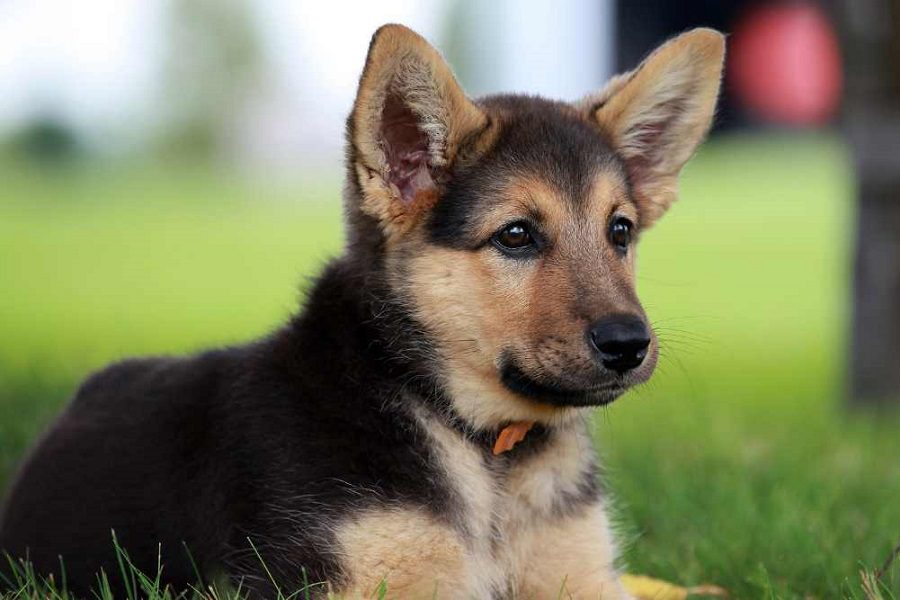
Approach this task with care and patience. There are plenty of breeders out there that are just trying to make a few dollars and will tell you anything you want to hear.
Make sure you ask questions related to the dog that you might choose to welcome into your family.
Inquire about who the parents are, how many breeds are involved in the dog’s heredity, are there any known health ailments or temperament issues, is there a health guarantee, do they supply veterinarian approval of health papers, and how many litters the mother has had in her lifetime.
If the breeder is not able to answer these questions or provide documents from the veterinarian, it is best to walk away.
However, if the breeder is welcoming and provides details about the DNA line and health information, you probably have a good breeder.
While miniature German Shepherds are adorable, remember that they can have a variety of traits that are a result of their DNA.
Although most GSDs are easily trainable due to their high intelligence, training a miniature German Shepherd does not guarantee the same result.
Conclusion
If you have welcomed a miniature GSD into your family and seem to be having issues with his or her temperament, it is wise to consult with a veterinarian to see if any health issues are causing the reaction or if it is just a matter of training issues.
You can either choose to train your dog yourself or ask a professional dog trainer for help.
Training your dog on your own is a great bonding experience that should yield excellent results. But if there is ever an issue, a professional session or two couldn’t hurt.
Resources:

